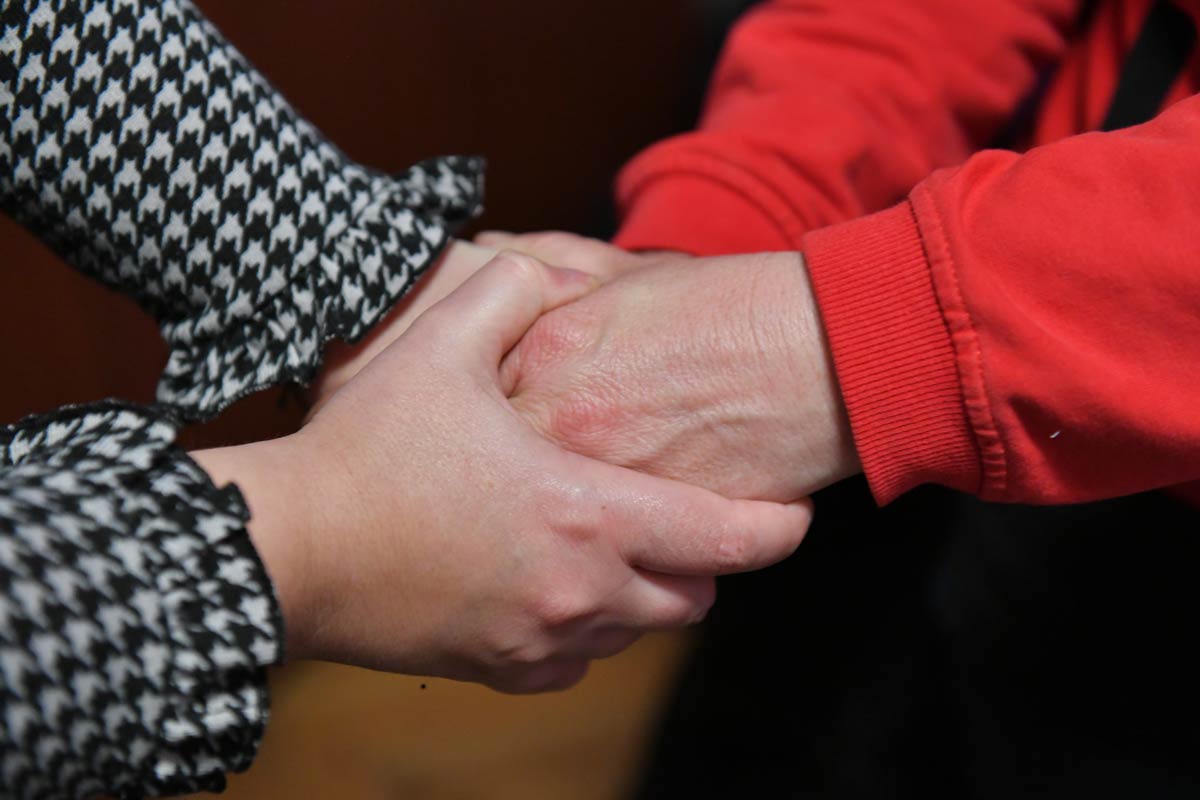Finally convicted after years of violence
For years, Liljana’s husband subjected his wife and daughters to violence. It was only with the support of The Kvinna till Kvinna Foundation's partner organisation that he was finally held accountable.

Liljana, whose real name is something else, lives in the town of Štip in the east of North Macedonia. She’s been married for more than 30 years. During the first ten years of their marriage, the couple had what Liljana calls a “normal life.” They both had jobs, lived in a house and had two daughters. But then her husband started drinking. In the end, he was drunk around the clock—a habit that cost a lot of money.
“We had bought construction supplies for our house, but he sold all of it. Pipes, concrete blocks, everything. When there was nothing left to sell, he began harassing us,” Liljana says.
Police threatening her
The abuse continued for years. Liljana tried calling the police several times, but her husband got off with nothing but verbal warnings. Some officers didn’t even stop by the house.
“Four or five of his friends are police officers. When they’re on duty, they simply ignore me. A few times, they even came by to reprimand me instead of him. ‘Why are you asking for help?’ they said. ‘If you call us one more time, we’ll take you to the station.’”
Liljana was shuttled back and forth between the police and social services. At long last, someone referred her to The Kvinna till Kvinna Foundation’s partner organisation Educational Humanitarian Organisation (EcHO), which specialises in supporting women who’ve experienced violence.
Justice at last
EcHO’s legal advisor Blagica Kirov helped Liljana, ensuring she had adequate representation in court. Her husband was eventually convicted for domestic violence and sentenced to six months in prison.
Blagica is convinced North Macedonia’s problem isn’t necessarily bad legislation. Instead, she points to society’s attitude.
“I learned early on that a good law is one that’s actually respected,” she says.
Liljana’s husband, who kept drinking and remained abusive even after he was released from prison, was later ordered by the court to undergo treatment for his alcoholism. EcHO stayed by Liljana’s side throughout the whole ordeal, offering her free legal advice.
Support like this is crucial for women like Liljana, who are trapped in abusive relationships because they’re unable to afford a divorce or because they’d have nowhere to go if they had to move out of the family’s home.
“Someone has to start”
Liljana wants to tell her story because she wants to show what life is like for many women who live with domestic violence.
“Someone has to be the first to speak out. But I understand people are afraid. If my husband found out I was here now, for example, I’d be in big trouble,” she says.
After she’s spoken, a silence falls in EcHO’s office. Outside, the February sky is grim and overcast. But inside, there’s warmth. Like a flame kindled by a fighter’s spirit.
Kvinna till Kvinna has worked for women’s rights in North Macedonia since 1999. We support and work together with several local women’s rights organisations to end gender-based violence and defend women’s rights.